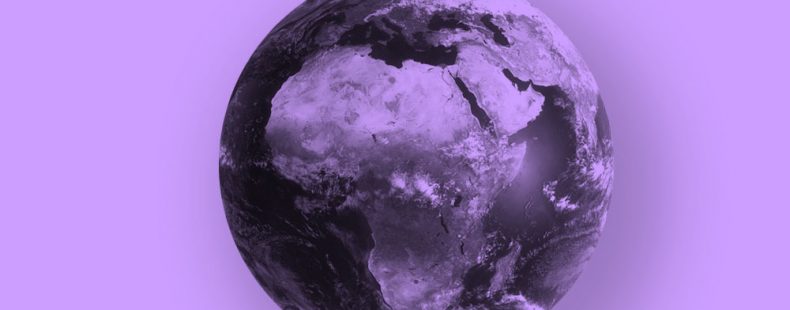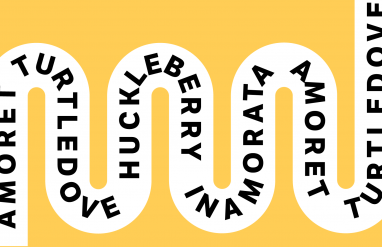by Min Straussman
Every April 22, people around the world celebrate Earth Day, a day to raise awareness about environmental issues and to appreciate the natural world. Earth Day was first observed in the United States in 1970. It was a day of protest for better environmental protections. In the era of climate change, the words of present-day and historic environmental activists are more important than ever. Here are 15 Earth Day quotes to remind you to think of the beauty of the earth and the importance of preserving it, on Earth Day and every other day of the year.
1.
Our goal is not just an environment of clean air and water and scenic beauty. The objective is an environment of decency, quality and mutual respect for all other human beings and all living creatures.
—Gaylord Nelson, Earth Day speech, 1970
decency
To kick off our examination of key Earth Day quotes, we should hear from one of the founders of the holiday himself, Senator Gaylord Nelson, a Democrat from Wisconsin. This quote, from a speech given on the first Earth Day, describes the goal as an environment of decency, a noun meaning “conformity to the recognized standard of propriety, good taste, modesty, etc.” It comes from the Latin decēns, meaning “fitting.”
2.
Here and there awareness is growing that man, far from being the overlord of all creation, is himself part of nature, subject to the same cosmic forces that control all other life. Man’s future welfare and probably even his survival depend upon his learning to live in harmony, rather than in combat, with these forces.
—Rachel Carson from Lost Woods, “Essay on the Biological Sciences,” [1956]
harmony
Writer and conservationist Rachel Carson is best known as the author of Silent Spring (1962), a book that documented the harms caused by pesticides. In this essay, she argues that humanity needs to live in harmony, or “agreement; accord,” with nature. Harmony comes from the Greek harmonia, meaning “joint, framework, agreement.”
3.
We are called to assist the Earth to heal her wounds and in the process heal our own—indeed, to embrace the whole creation in all its diversity, beauty and wonder.
—Wangari Maathai, Nobel Peace Prize Laureate Lecture, 2004
creation
Kenyan environmental activist Wangari Maathai was a lifelong advocate for reforestation as a way to restore the natural environment. With her love for making trees grow, it makes sense that she would draw connections to creation, “the act of producing or causing to exist.” She was the first African woman awarded the Nobel Peace Prize.
4.
Mother Earth needs us to keep our covenant. We will do this in courts, we will do this on our radio station, and we will commit to our descendants to work hard to protect this land and water for them. Whether you have feet, wings, fins, or roots, we are all in it together.
—Winona LaDuke, Earth Day speech, 2015
covenant
LaDuke is an Ojibwe environmental activist and Green Party politician. Like Carson and Maathai, LaDuke uses spiritual language to talk about the importance of caring for the planet. A covenant is “an agreement, usually formal, between two or more persons to do or not do something specified.” It is also used in legal and Biblical domains to refer to a binding agreement.
5.
Even if you never have the chance to see or touch the ocean, the ocean touches you with every breath you take, every drop of water you drink, every bite you consume. Everyone, everywhere is inextricably connected to and utterly dependent upon the existence of the sea.
—Sylvia Earle, The World is Blue: How Our Fate and the Ocean’s Are One, 2009
inextricably
Marine biologist Sylvia Earle draws attention to the importance and interconnectedness of the oceans and seas to all other natural habitats. She describes all beings as inextricably, or “in a way that is unable to be separated or disentangled,” connected to marine environments.
6.
I often joke that the moon and stars look beautiful, but if any of us tried to live on them, we would be miserable. This planet of ours is a delightful habitat. Its life is our life, its future our future.
—Dalai Lama, 2021
habitat
One of the important aspects of Earth Day is the celebration of the natural world. This quote from the Dalai Lama notes that the Earth is a “delightful habitat,” “the natural environment of an organism,” compared to the moon and distant suns. The word habitat comes from the Latin for “it inhabits.”
7.
Whoever you are, no matter how lonely, the world offers itself to your imagination, calls to you like the wild geese, harsh and exciting—over and over announcing your place in the family of things.
—Mary Oliver, “Wild Geese,” 1986
imagination
Mary Oliver was a poet whose work often described the beauty and difficulty of the great outdoors. One of her most famous poems is “Wild Geese,” where she mentions imagination, “the faculty of forming mental images or concepts of what is not actually present to the senses.” Imagination is a term first recorded in the 1300s; the idea of a creative imagination is newer and related to the 15th-century conception of fancy, which you can read more about here.
8.
There is no good thing in the world that will be made more abundant, or spread more widely, by global warming. The list of the bad things that will proliferate is innumerable.
—David Wallace-Wells, The Uninhabitable Earth: Life After Warming, 2019
proliferate
One of the biggest challenges facing the environment today is that of climate change. Journalist David Wallace-Wells set out to describe what would happen during climate change if changes were not made to limit pollution. He says here that “bad things” will proliferate, or “to increase in number or spread rapidly and often excessively.” Perhaps appropriately, proliferate is a term that has its roots in the biological sciences, where it refers to “budding or cell division.”
9.
I have long understood that climate change is not only an environmental issue—it is a humanitarian, economic, health, and justice issue as well.
—Frances Beinecke, 2014
humanitarian
Often we think of climate change and other environmental issues as separated from the issues that people face every day. However, according to former President of the National Resources Defense Council Frances Beinecke, climate change is also a humanitarian issue. Humanitarian here means “having concern for or helping to improve the welfare and happiness of people.”
10.
How am I supposed to plan when my leaders aren’t doing the same and instead leaving future generations with a planet that is inhospitable and where it’s impossible to sustain civilization?
—Jamie Margolin, interview with Teen Vogue, 2018
sustain
Someone else who is seeking to sound the alarm about climate change is Colombian-American activist Jamie Margolin. In this interview, Margolin is blunt about her skepticism about the planet being able to sustain life in the face of climate change. Sustain is a verb with a variety of meanings, including “to supply with food, drink, and other necessities of life.” The word sustain comes from the Latin sustinēre, meaning “to uphold.”
11.
My heart found its home long ago in the beauty, mystery, order and disorder of the flowering earth.
—Lady Bird Johnson, Native Plants Magazine, Fall 2002
flowering
First Lady Johnson was not nearly as radical as Jamie Margolin, but likewise for her, caring for the beauty of the environment was one of her life pursuits. She had a particular passion for flowers, which shines through in this quote about her love for the outdoors, which she describes as flowering, meaning “bearing flowers.” Flowering ultimately comes from the Middle English flour meaning “flower, best of anything,” a sentiment Lady Bird Johnson would have no doubt shared.
12.
There are no passengers on Spaceship Earth. We are all crew.
—Marshall McLuhan, 1965
crew
Marshall McLuhan was a Canadian philosopher who wrote about a number of topics, including media, technology, and the environment. The term “Spaceship Earth” was in use by the mid-1960s to describe the notion that the planet Earth is analogous to a manned spacecraft. The word crew here means “a group of persons involved in a particular kind of work,” in this case, the work is to keep the climate sustainable.
13.
When the last tree is cut, the last fish is caught, and the last river is polluted; when to breathe the air is sickening, you will realize, too late, that wealth is not in bank accounts and that you can’t eat money.
—Alanis Obomsawin, quoted in Who is the Chairman of This Meeting?, 1972
wealth
Abenaki American Canadian documentary filmmaker Alanis Obomsawin’s quote has gained popularity for its Lorax-like call for environmental and economic justice. She emphasizes her definition of wealth, a word which typically means “a great quantity or store of money, valuable possessions, property, or other riches.” Obomsawin implies that wealth instead is defined by a clean, sustainable environment.
14.
These people have learned not from books, but in the fields, in the wood, on the river bank. Their teachers have been the birds themselves, when they sang to them, the sun when it left a glow of crimson behind it at setting, the very trees, and wild herbs.
—Anton Chekhov, “A Day in the Country,” 1886
teachers
In his short story “A Day in the Country,” Anton Chekhov describes the benefits of living in the countryside in romantic terms. Chekhov says that the country folk have had birds as teachers, “a person who instructs, especially as a profession.” We can assume this is a metaphor, not a literal reference to avian educators.
15.
To leave the world better than you found it, sometimes you have to pick up other people’s trash.
—attributed to Bill Nye, Undeniable: Evolution and the Science of Creation, 2014
world
Many of the most prominent environmental activists are scientists. They have closely studied the natural world and care about it deeply. One example is scientist and television presenter Bill Nye, who has often spoken about the need for stronger climate change protections. He is here talking about the whole world, “the earth or globe, considered as a planet.” World comes from the Germanic term for “age of man,” a good reminder of the role humanity plays in the environment.
Maybe these quotes from environmental activists and nature lovers will inspire you to have a new appreciation for the planet and its climate. You can learn more about key Earth Day terms from our article here. As you can see from the figures on our list, which includes writers, poets, scientists, politicians, and more, anyone can master the language of climate consciousness.
Min Straussman is a freelance writer and educator from Pittsburgh, Pennsylvania. A frequent contributor to Dictionary.com and Thesaurus.com, his work has also appeared in Hey Alma, beestung, and other publications. He lives in Paris. For more by Min, read: 19 Trailblazing Quotes From Women Of Color On The Pursuit Of Suffrage | Terms For Understanding The Diversity Of Jewish American Life | A Language Of Pride: Understand The Terms Around LGBTQ Identity |7 Meaningful Ways To Express Your Gratitude













